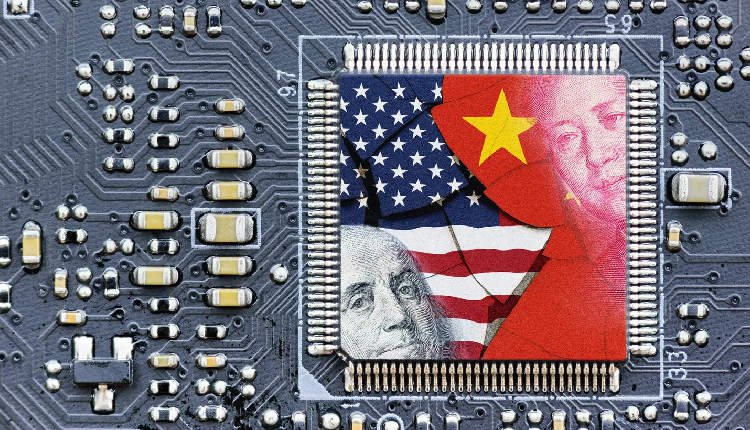Asian chip stocks plunged on Thursday, mirroring a steep selloff on Wall Street triggered by news that the US government is considering stricter export controls on advanced semiconductor technology to China.
Shares of Taiwan Semiconductor Manufacturing Co (TSMC), the world’s largest contract chipmaker, have lost about T$2 trillion ($61.35 billion) in market value over the past two days, making it one of the hardest-hit companies.
The company faces challenges this week with reports of US restrictions and comments from Donald Trump suggesting Taiwan should pay for defense. TSMC’s stock dropped over three per cent.
Other major chipmakers in the region also experienced significant losses. South Korea’s Samsung Electronics and SK Hynix were down 1.85 per cent and 4.1 per cent respectively.
While Japan’s Tokyo Electron slumped over eight per cent. The broader Global X Asia Semiconductor ETF fell 2.7 per cent, significantly eroding its year-to-date gains to 13.5 per cent.
A Bloomberg News report on Wednesday stated that President Joe Biden’s administration is considering implementing the foreign direct product rule.
The rule would enable the US government to prevent the sale of products made with American technology. This could lead to restrictions on companies like Tokyo Electron and ASML from the Netherlands.
TSMC’s American Depositary Receipts (ADRs) mirrored the decline in Asia, falling eight per cent on Wednesday.
Notably, in its first-quarter earnings report, TSMC reported that 69 per cent of its revenue comes from North American customers, while China contributes only to nine per cent.
Washington’s focus on protecting the US semiconductor manufacturing industry due to its strategic importance in competing with China has raised concerns among investors.
Kang Jin-hyeok, an analyst at Shinhan Securities in Seoul, noted that macro and geopolitical factors have had a greater impact than fundamentals.
Kang’s observation aligns with the strong recent earnings performances by Samsung and ASML. However, he highlighted that ASML’s heavy reliance on China for sales makes it vulnerable to the proposed US restrictions.
Notably, China accounted for 49 per cent of ASML’s second-quarter lithography system sales and represents about 20 per cent of its order backlog
The Biden administration has been proactive in limiting China’s access to cutting-edge chip technology. This includes sweeping restrictions implemented in October targeting exports of AI processors designed by companies like Nvidia.
The recent escalation in Sino-US tensions has accelerated a potential investor shift from Big Tech stocks towards smaller value stocks, based on the expectation that lower US interest rates will benefit smaller companies.
Tech stocks have outperformed the market this year, fueled by the global AI boom. The Nasdaq has risen 20 per cent year-to-date, compared to a 17 per cent gain for the S&P 500.
However, Thursday’s selloff in Asia painted major stock exchanges red. Tokyo’s Nikkei shed two per cent, while Taiwan’s stock index dropped 2.3 per cent. South Korea’s KOSPI index fell 1.34 per cent, and Hong Kong’s Hang Seng Tech Index lost 1.5 per cent.
Attribution: Reuters


